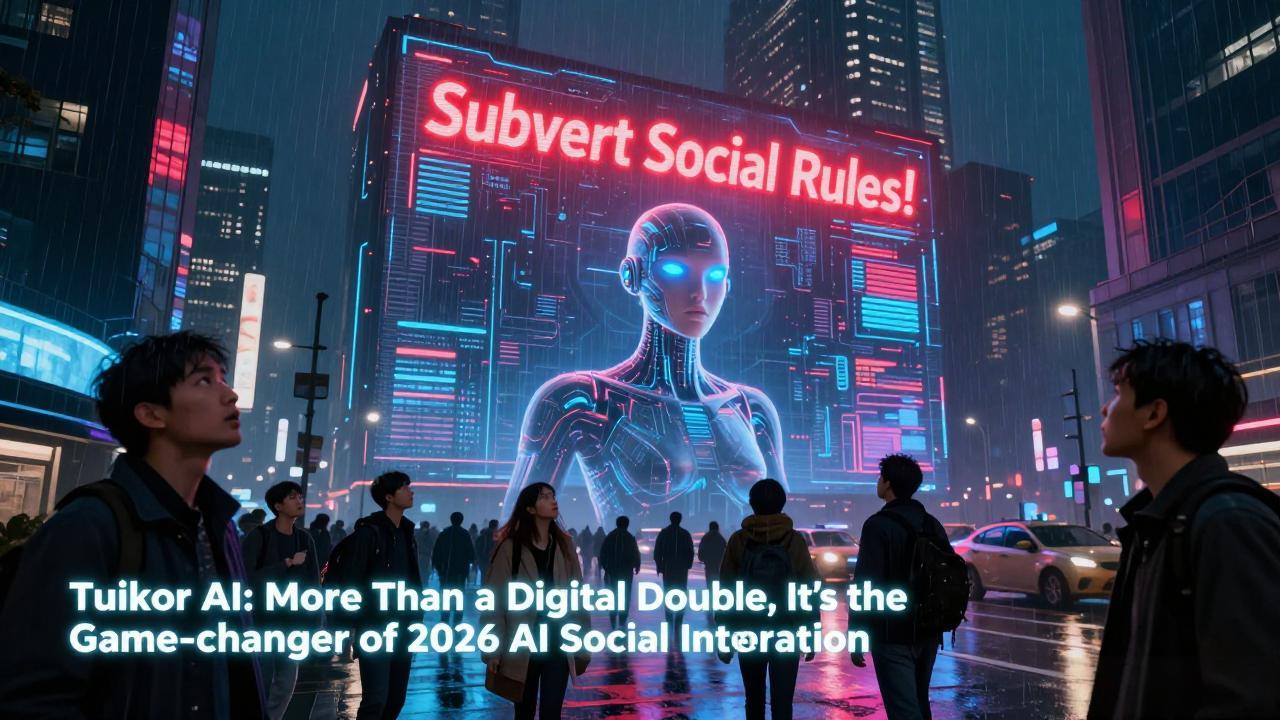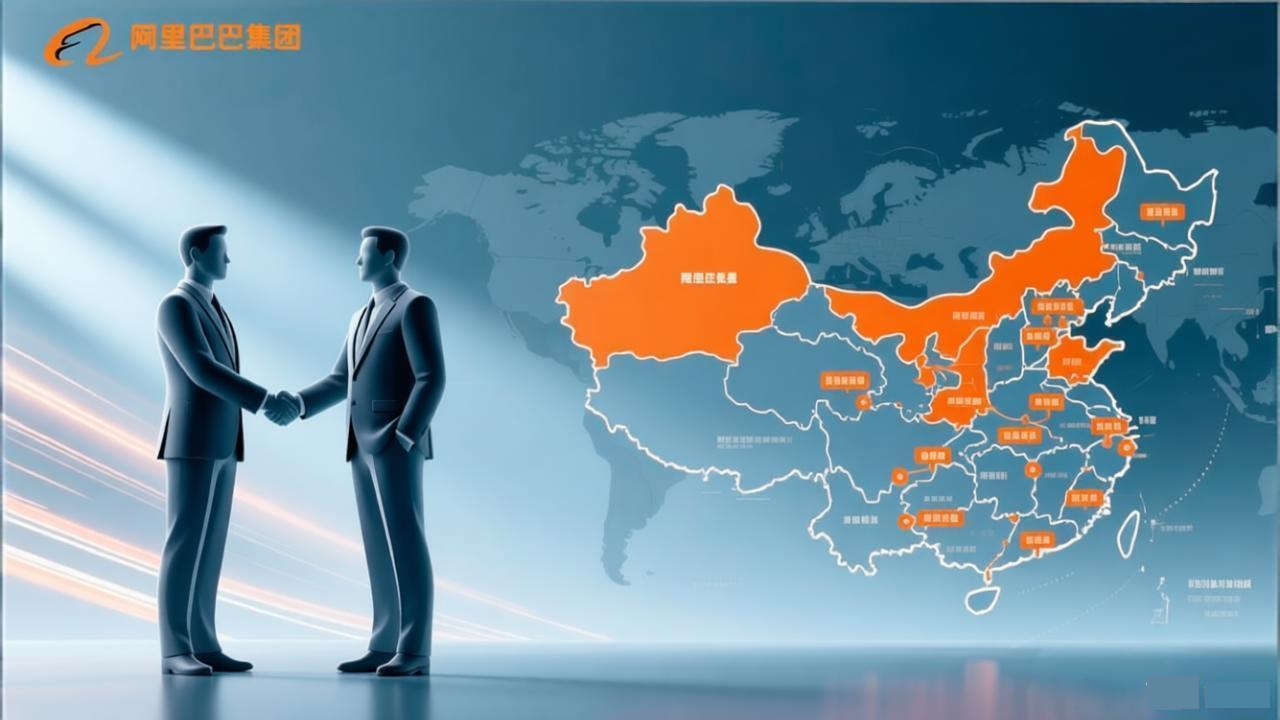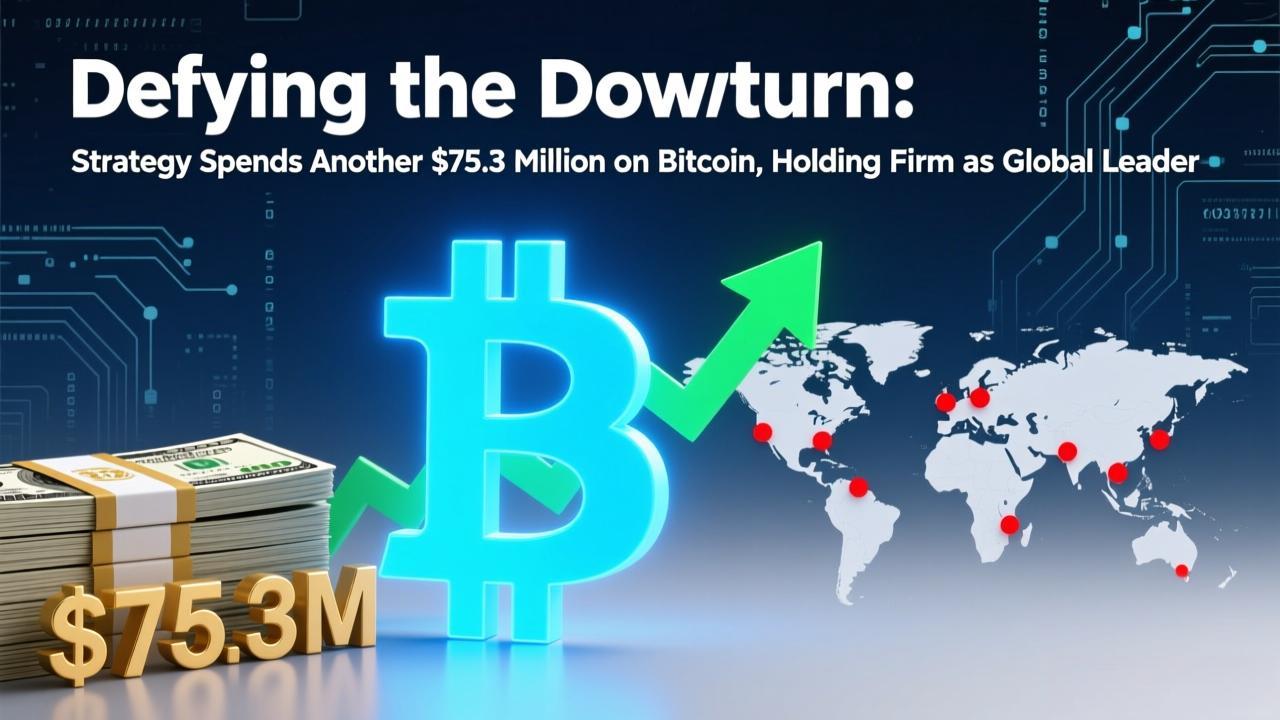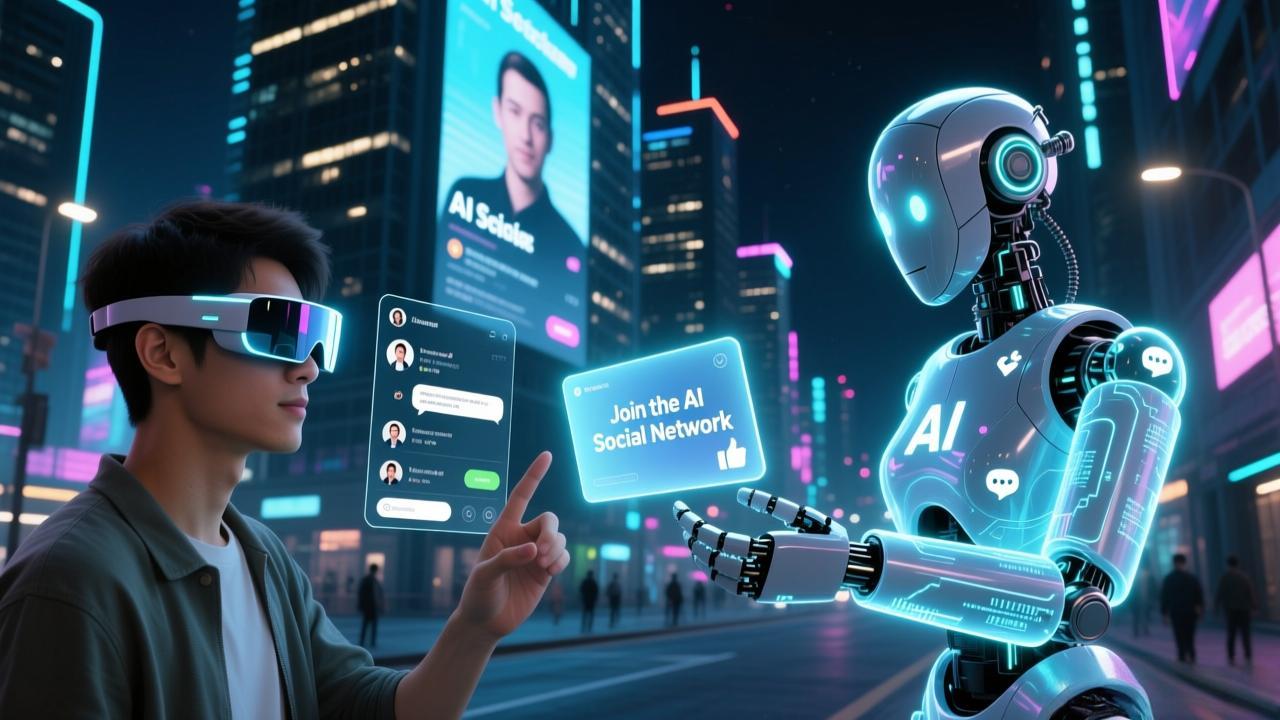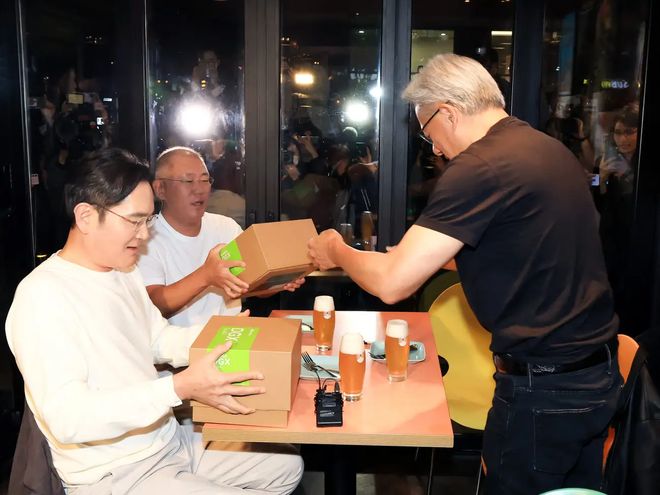
Jensen Huang, CEO of NVIDIA and a superstar in the AI industry, is drawing global investors’ attention with his trip to South Korea.
On the evening of Thursday (October 30), Huang dined on fried chicken and drank beer with Lee Jae-yong, Chairman of Samsung Electronics, and Chung Eui-sun, Chairman of Hyundai Motor Group, at a fried chicken restaurant in Seoul called “Kkanbu Chicken” — an event that sparked intense attention from the media and the public.
It is reported that when the three were enjoying their meal and beer inside the restaurant, a large crowd of reporters, photographers, and fans gathered outside. Other diners in the restaurant also took photos with their mobile phones.
During the meal, Huang presented Lee and Chung with gift boxes engraved with “NVIDIA DGX” — NVIDIA’s small-scale AI computers. Attached to each gift box was a handwritten note from Huang, which read: “To our cooperation and the future of the world!”
The combination of fried chicken and beer is extremely popular in South Korea, known locally as “Chi-maek” (a portmanteau of “chicken” and “maekju,” the Korean word for beer). Sources indicate that Huang personally chose the dinner venue, as he wanted to experience South Korea’s Chi-maek culture firsthand.
In Korean, “Kkanbu” means “close friend” or “a highly trustworthy partner.” Analysts point out that Huang’s choice of “Kkanbu Chicken” as the meeting place is seen as a symbolic gesture — he aims to form an “alliance like brothers” with Samsung and Hyundai.
Though the dinner seemed to have a relaxed atmosphere, it has actually become a focal point for the global semiconductor and automotive industries. Unsurprisingly, the biggest question on the outside world’s mind is: what topics did the three corporate leaders discuss during the meal?
Market reports on Tuesday suggested that Huang would announce new AI chip supply contracts with major South Korean companies during his visit. The reports noted that the agreements would include collaborations with Samsung Electronics, Hyundai Motor Group, and SK Group, helping NVIDIA expand its presence in South Korea — a key market.
When asked about the specific content of their talks in an interview on Thursday, Huang revealed that he discussed in-depth cooperation with the leaders of Samsung and Hyundai on areas such as deepening HBM (High Bandwidth Memory) storage collaboration, developing fully autonomous driving systems, accelerating the adoption of humanoid robots, and exploring potential chip foundry partnership prospects.
Before entering the restaurant, Huang also told reporters that he was looking forward to meeting South Korean President Yoon Jae-in at the APEC Summit the next day, and disclosed that “many important announcements about ongoing projects will be made.”
This is not the first time Huang has made such a statement. On Tuesday, he said he expected to announce several joint initiatives with South Korean companies during his visit this week — initiatives that would satisfy both U.S. President Trump and South Korea.
Related Concept Stocks Surge
Notably, the dinner between the three corporate leaders has also driven a sharp rise in related concept stocks in the South Korean stock market.
While Kkanbu Chicken is not a listed company, photos and videos of the dinner spread widely on social media. As a result, shares of its competitor, Kyochon F&B Co., soared by as much as 20% at the opening of trading on Friday.
Shares of South Korean poultry processor Cherrybro Co. also hit a 30% daily limit-up, with trading volume reaching approximately 200 times its average daily level. Neuromeka Co. — a Kosdaq-listed company (Kosdaq is South Korea’s tech-heavy growth board) that produces fried chicken-making robots — also saw its stock price surge significantly.
This phenomenon reflects how “viral spread” and “internet memes” continue to influence the South Korean stock market. Investors with high risk appetites often chase short-term gains tied to cultural, political, or economic hot topics. Such market movements typically occur in small-cap Kosdaq stocks, driven mostly by sentiment rather than fundamentals, and often have no substantial connection to a company’s actual operations.
Another example occurred in August this year: when U.S. President Trump praised the pen used by South Korean President Yoon Jae-in during their meeting at the White House, shares of South Korean pen manufacturer MonAmi skyrocketed in response.
This is not the first time Huang has acted as a “stock market trendsetter.” Last year, Huang mentioned several AI-related companies in a speech, and their stock prices subsequently surged — a testament to his immense market influence beyond NVIDIA.
